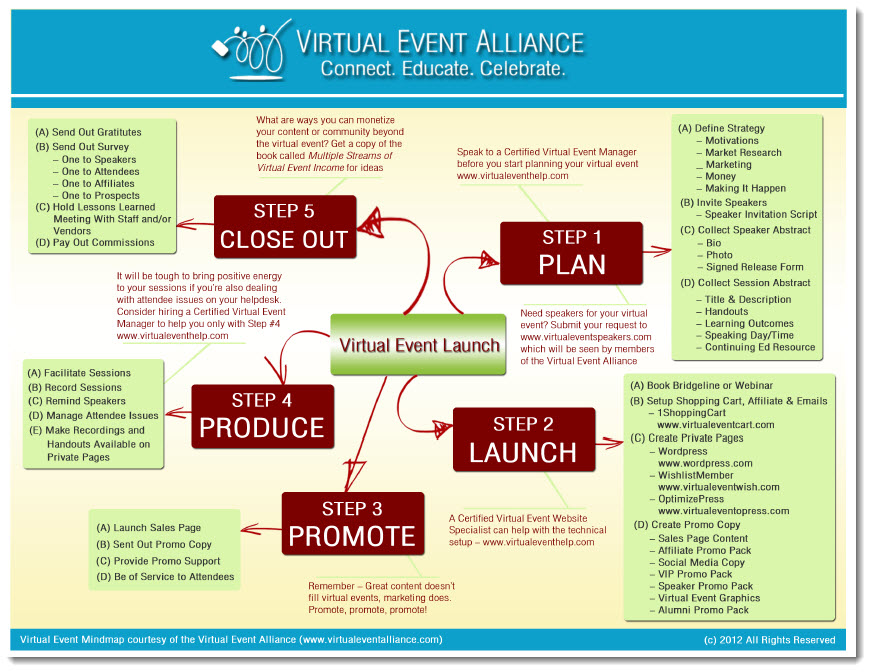 I got the idea for the title of this post from Milana Leshinsky’s wonderful report on how to add coaching to your business in 48-hours or less.
I got the idea for the title of this post from Milana Leshinsky’s wonderful report on how to add coaching to your business in 48-hours or less.
So, I often get asked what is the difference between a teleclass and a virtual event. The difference between the 2 is that virtual events are set up like a serial. According to Wikipedia.org, serials are:
Stories that rely on a continuing plot that unfolds in an episode by episode fashion. Serials typically follow main story arcs that span entire seasons or even the full run of the series, which distinguishes them from traditional episodic television that relies on more stand-alone episodes. Worldwide, the soap opera is a notable derivative of the serial.
With your virtual event, you put together stories that unfold with a specific beginning and end. Even though you may be interviewing different people during your virtual event, each expert is presenting material that feeds into the main story arc or theme of your event.
Also, the serialized virtual event is much more financially lucrative. Attendees keeps tuning in to each session that takes place over consecutive days and weeks to learn more. Also, attendees feel your virtual event is well worth the investment because they get a mountain of content for a low price. Think about it – if you offer 18 sessions for $497, the actual cost per session is $27 (and there’s no money spent on travel or hotel).
Therefore, a 3-min clip of you singing the Facebook blues isn’t a virtual event. It’s a video online. However, if you prepare a series of videos that explain complicated terms in plain English, they can be considered a virtual event.
Let’s take a look at other examples of virtual events you can start in the next 48-hours or less.
- Podcasting – This is an audio or video series that’s syndicated. You produce a daily or weekly episode and share it via iTunes with your audience. Just posting a recording on your blog from your recent teleclass or posting a video to YouTube is not enough. You need to commit to a schedule and syndicate the content in order for it to be considered a podcast.
- Telesummits – This is a series of teleclasses that feature a variety of speakers over consecutive days or hours. Examples of these are the Social Media Telesummit, Adwords Advantage or Practice Building Virtual Conference.

- Virtual Workshop – This is a series of teleclasses or webinars that feature only one or two speakers who train you on a specific task. Each week is a module that leads into the next. Examples are Couples Transformations and my Virtual Event Launch Secrets program.
- Virtual Coaching – Whether it’s one-to-one or in a group setting, you can coach your clients virtually. Just make sure to do so over consecutive days or hours so it qualifies as a virtual event. Kendall Summerhawk wrote about a full day virtual retreat concept where you meet with your client hourly in one day and Milana Leshinsky lists 20 exciting ways to coach your client (#1-#9 are virtual formats).
- Virtual Job Fairs – Employers and job candidates meet virtually and share resumes and job leads. This type of event takes place over consecutive hours and may feature expert speakers. Examples are eFairJob and Monster’s Virtual Job Fair.
- Virtual Trade Shows – Complete with exhibitors on a virtual trade show, sponsors and speakers, these huge events attract thousands of attendees. Although the cost to set up this type of virtual is high, the profit margin is equally high.
In my examples above, just remember that the tool doesn’t matter. Whether you host your virtual event over the phone or online, just make sure you don’t book a conference room. What matters, however, is the strategy.
Are there any other virtual events you would add to this list?


0 Comments